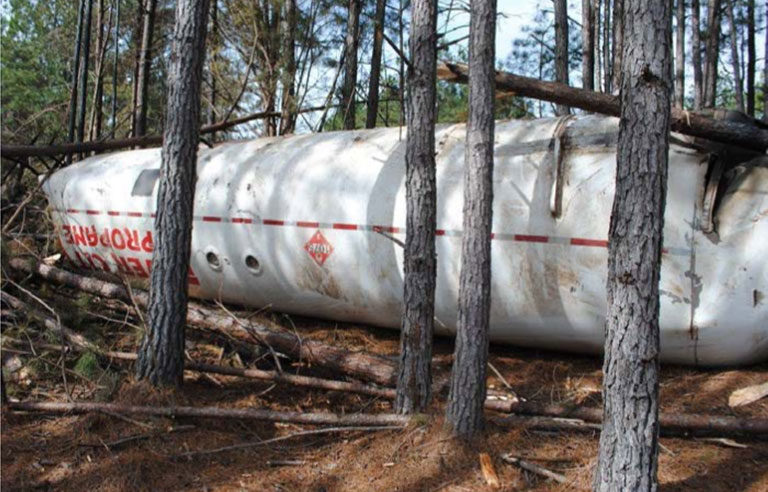Cargo tank inspectors may lack necessary skills, NTSB says after crash investigation

Washington — Inadequate training and certification of cargo tank inspectors may be a “widespread problem,” putting tanker truck drivers and motorists at risk, according to a National Transportation Safety Board report issued after an investigation of a crash involving a tanker truck carrying propane.
NTSB made several recommendations to the Federal Motor Carrier Safety Administration and the Pipeline and Hazardous Materials Safety Administration in its report on a single-vehicle incident in March 2016 near Stroud, AL, that seriously injured the driver of a 10,500-gallon tanker truck.
According to the report, released Jan. 30, the tanker truck was traveling north on a two-lane, undivided highway when the driver entered a curve at an excessive speed and began to encroach on an SUV in the southbound lane. NTSB later determined that the tanker truck driver overcorrected and lost control of the vehicle, causing separation of the propane tank from the tractor. The driver was ejected from the tractor. The detached tank struck a rock, rupturing and causing a fire.
During a post-crash inspection of the cargo tank, agency investigators made several observations – including corrosion and missing bolts. Those observations contradicted statements contained in required reports created from 2011 through 2015 by an inspection company hired by the cargo tank’s owner.
NTSB investigators concluded that “current regulations and federal oversight are not adequately ensuring that inspectors have the knowledge, skills and abilities to perform these critical safety inspections.”
Among the agency’s recommendations:
- To FMCSA: Work with PHMSA to incorporate by reference the registered inspector training requirements of the existing industry cargo tank inspection code into the Hazardous Materials Regulations.
- To PHMSA: Revise the definition of “registered inspector” under Title 49 Code of Federal Regulations 171.8 to eliminate the “grandfather provision,” and develop and implement a process to ensure all people certified to inspect cargo tanks have the necessary knowledge, skills and abilities to adequately perform inspections of cargo tanks to verify their safety.
- To PHMSA: Work with FMCSA to incorporate by reference the registered inspector training requirements of the existing industry cargo tank inspection code into the Hazardous Materials Regulations.
- To PHMSA: Revise Title 49 Code of Federal Regulations Part 180, Subpart E, to permit the suspension or revocation of the registrations of highway cargo tank inspectors for failure to meet the requirements of that subchapter.
In November, "Ensure the Safe Shipment of Hazardous Materials" made its debut on NTSB’s “Most Wanted” list of safety improvements for 2017-18.
Post a comment to this article
Safety+Health welcomes comments that promote respectful dialogue. Please stay on topic. Comments that contain personal attacks, profanity or abusive language – or those aggressively promoting products or services – will be removed. We reserve the right to determine which comments violate our comment policy. (Anonymous comments are welcome; merely skip the “name” field in the comment box. An email address is required but will not be included with your comment.)

